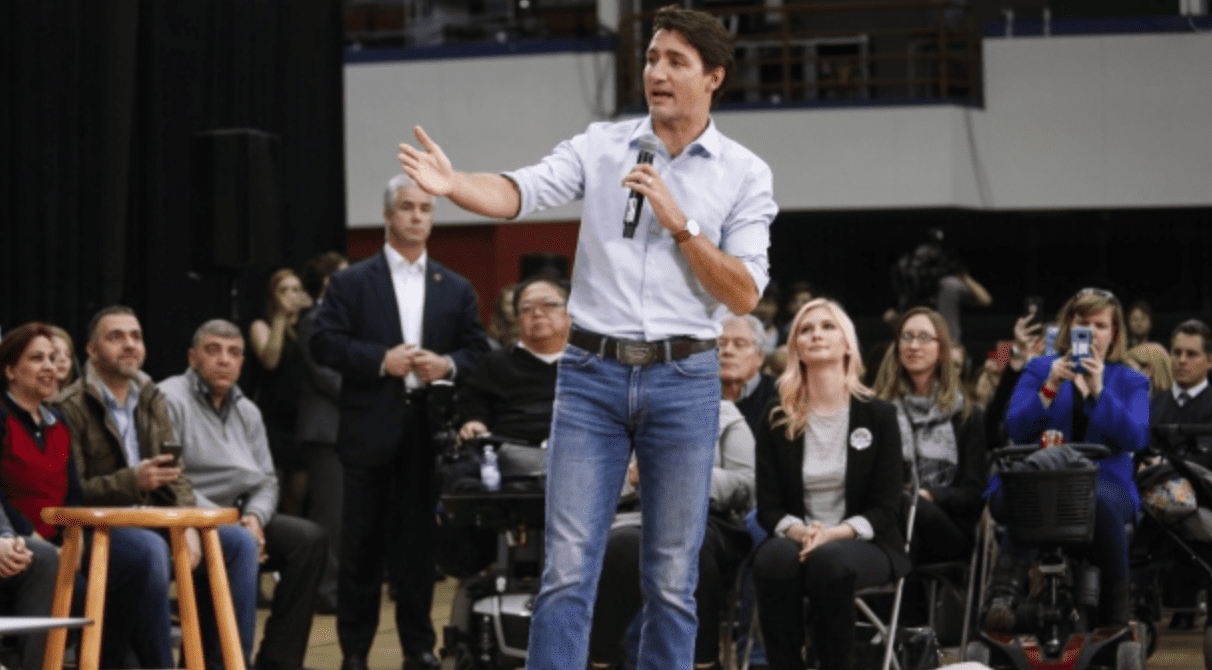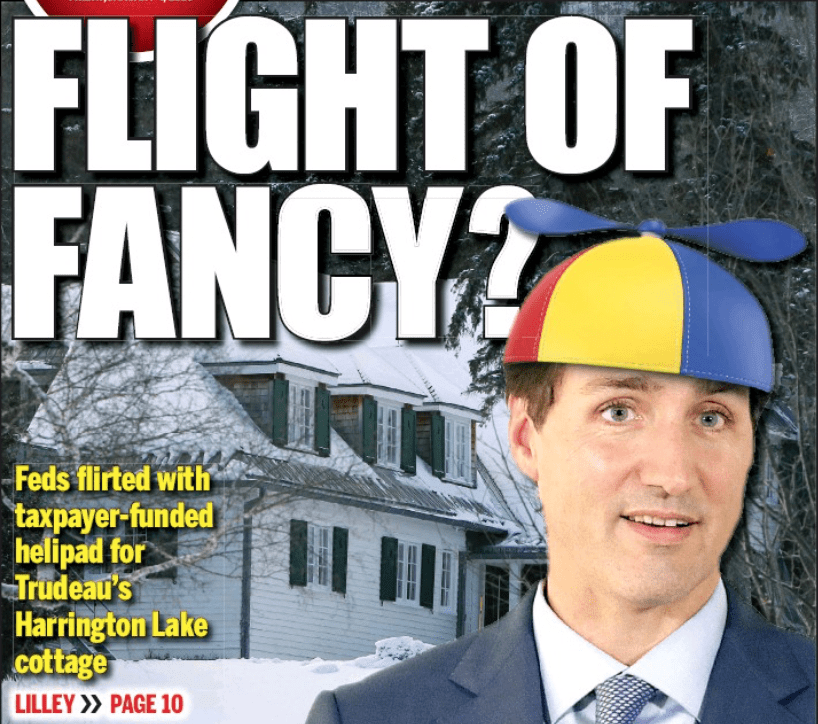Prime minister Justin Trudeau is on one of his "town hall" tours, going across the country to get a chance to engage with "real Canadians" in order to let them ask him questions unscripted, and from audiences who aren't necessarily all friendly to him. It's something that very few politicians in Canada have done in recent memory the closest Stephen Harper got to it was a handful of "interviews" from Senator Mike Duffy once he pledged allegiance to Harper in exchange for his seat, and while he was (briefly) considered an asset to the party and fundraising machine, before the eventual disgrace and expulsion from the party. Hard questions Harper did not receive. But whenever I watch one of these town halls, I am reminded of Trudeau's performance in his Dollarama-knock off "Prime Minister's Questions" that he has tried to implement in Ottawa, but that hasn't really worked out the way he might have hoped for.
The idea of implementing a Prime Minister's Questions in the Canadian parliament is certainly a good one on paper. In practice, however, it hasn't quite worked out as well as anyone may have hoped. The idea is that on Wednesdays, Trudeau would answer questions from any MP, not just the leaders, and lo, backbenchers of all stripes could ask the prime minister a question directly, and isn't it novel that he'll answer them? Who wouldn't like the kind of exchanges that we see in Westminster, where their PM gets to feel the heat for those thirty minutes a week, and we get to see exchanges that are sharp, and yet witty, with plenty of self-deprecating humour to go around. But the gap between idea and execution on this one is vast.
For one, it underestimated what goes into the UK's PMQs. One of the reasons why there are substantive exchanges in Westminster for the PM's sole appearance in a week (the rest of the Question Time sessions are devoted to individual ministers on a rotation basis) is that questions are submitted in advance. That way, the civil service can prepare briefings for the PM on the matters being asked, and he or she will be able to come prepared. That doesn't happen here. In our Parliament, MPs don't tip off the PM or minister in advance as to what they're going to ask, so ministers are supposed to be briefed on any issues of the day, or barring that, know how to quickly access the relevant points on their "QP cards" or ministerial briefing binders in short order. (Note that on occasion, a backbencher will tip off the minister beforehand in the hopes of a substantive answer, but this is rare). We also don't have the kind of debating culture that breeds the wit and self-deprecating humour of the Brits, which doesn't help matters.
Our Question Period has largely devolved into an exercise in delivering talking points rather than answers, with a few ministers as rare exceptions. During the Harper era, you would get minister or their parliamentary secretaries standing up to read or recite talking points that were complete non-sequiturs to the questions that were being asked. Under the current government, this has abated to an extent, but there are many days where the ministers are stuck on a message track that is focused on a pabulum talking point rather than an answer to the question posed or to correct the complete lies being espoused in the form of a question and there are many days where the parliamentary secretaries are as bad now as they were in the Harper era when it comes to reading talking points that are as far removed from the subject matter of the question being posed as can be imagined.
Now, granted, our system can be a bit more responsive to issues of the day provided that they happen early enough for opposition scripts to be changed up to raise said issue. And sometimes, this government can answer questions about urgent issues on the day of but not always, and sometimes it's more pabulum for a good 24 hours before they can come up with a reasonable response. Westminster compensates for this by allowing for the practice of Urgent Questions, where ministers can be hauled before the House of Commons at any point to answer questions on matters of the day, which we don't have any rules for.
The reliance on pat talking points and pabulum platitudes is what Trudeau falls back on when it comes to his attempt to give the impression that he answers all questions during his pale imitation of PMQs. We could probably give him props for not demanding written questions in advance, but the trade-off is the quality of responses. Granted, the material he has to work with isn't great either the Conservatives' QP strategy is to repeat the same questions eleventy different times in order to get as many clips as possible of them asking outraged questions so that they can share it over their various social media channels, and the PM responding with bland pabulum feeds into this pattern because it makes him look out of touch with the issues, or like he's refusing to answer (never mind that the questions these days are often predicated with lies, and his usual tactic is a platitude over a correction).
Which brings us back to these "town halls" that Trudeau is conducting. Just like with PMQs, the fact that he isn't being given questions in advance that he can properly brief up on ensures that the vast majority of his replies will be talking points and platitudes. Remember his is a government that can't communicate their way out of a wet paper bag. But where Trudeau gets his advantage in this format is the fact that he can use the theatricality of taking questions from "real Canadians," including a fair number of hostile questions, to his advantage. It makes him look like he's listening to Canadians and responding to their concerns, even if those responses are tepid mash and buzzwords flavoured with empathy. He looks like he's not afraid to take on his toughest critics in a way that looks more authentic than the scripted exchanges in the House of Commons, and it generally seems to come off well for him. Never mind that there's almost no substance to it it's the theatricality that matters. Is it enough to win him an election a second time around? We'll have to see, but it's nevertheless important to see these events for what they are.
Photo Credit: CBC News








